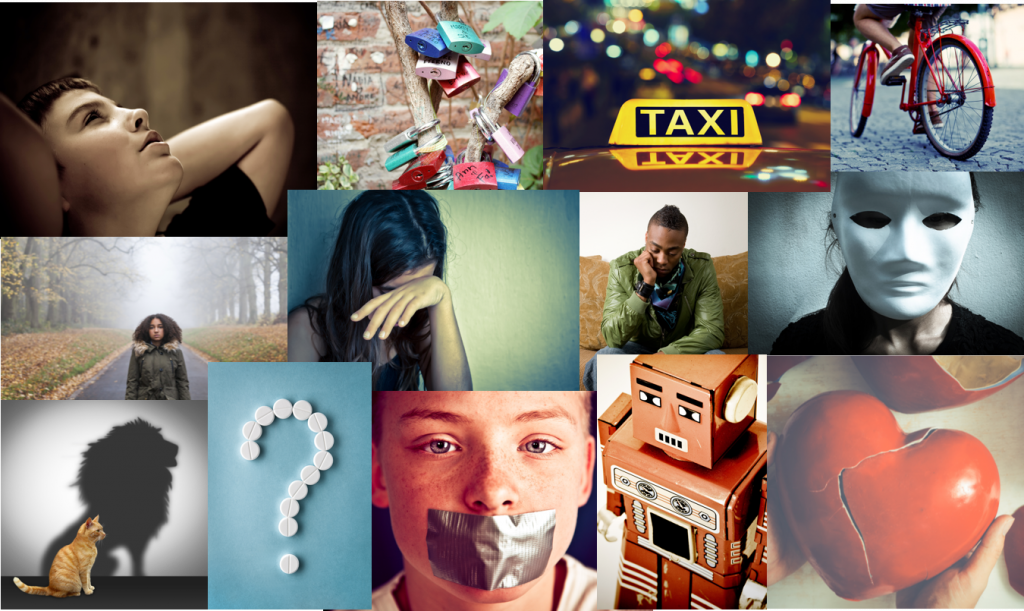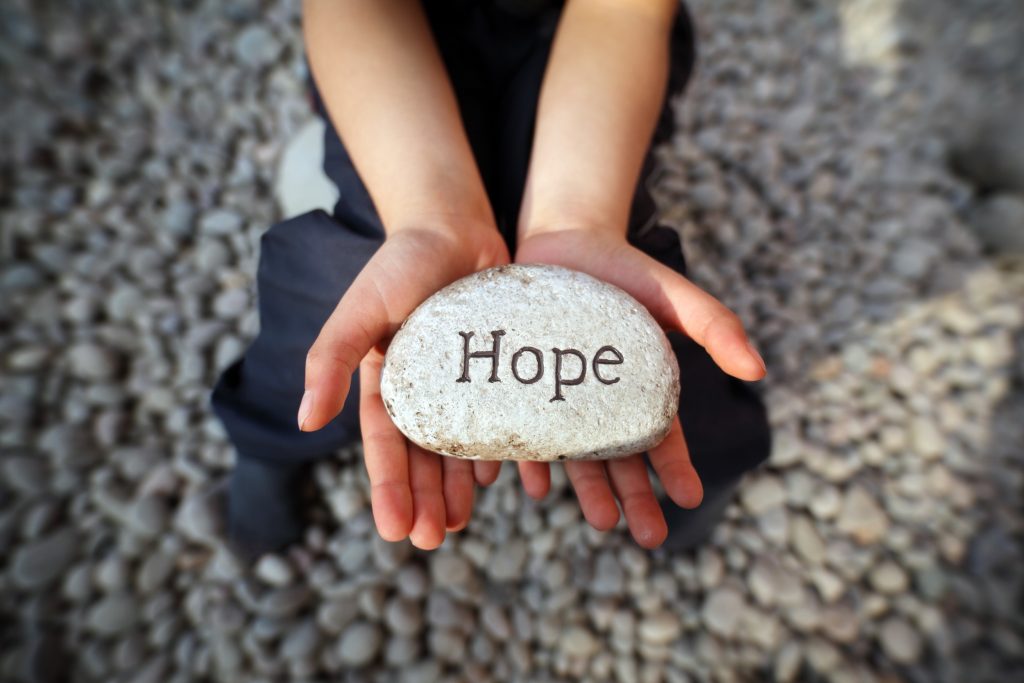
If you’re struggling to manage during the Covid-19 lockdown – whether you’re shielding, social distancing and self-isolating – you’re not alone. So many of us – whether we hear voices and see visions or not – are finding things tough. There are lots of different ways the current crisis may impact on living with voices, visions and similar sensory experiences. This page is intended to highlight some of these, in the hope it is validating to read it on a page, and to connect you with possible sources of support.
- How might Covid-19 affect living with voices & visions?
- Some ideas
- Covid-19 resources and links
- Survival strategies for voices and visions during lockdown
- Setting up an online hearing voices group
How might Covid-19 affect living with voices & visions?
People can be affected in a range of ways including:
- Voices and visions might reflect themes around infection, illness, guilt, the economy, isolation, fear, society, pragmatic concerns (food, housing, income), concerns around the future or other things related to the current situation.
- Voices and visions being more active than usual – this may be a relief, if they provide company, distraction or a sanctuary. However, it may also be worrying or overwhelming.
- People may struggle to use existing coping strategies or connect with people/places that provided support/distraction/solidarity.
- Increased stress from being in close proximity with family, partner or housemates (e.g. if they don’t know about the voices and someone feels they have to hide it).
- Relief from having to stay home and not interact with other people. The voices may be easier to manage, or quieter.
- Struggles working out what is ‘real’ and a sense of disorientation – especially if interaction with others, or being outside, is an anchor or reference point. They may find the voices are more persuasive or confusing than usual.

Some people may find that the current situation isn’t affecting their voices/visions at all. Others may recognise a number of the things mentioned above.
However you’re feeling is understandable.
Some Ideas
- Covid-19 resources and links
- Survival strategies for voices and visions during lockdown
- Setting up an online hearing voices group
Covid-19 resources and links
Reading other people’s experiences:
- NSUN Covid Life – “a collection of blogs and videos by our members, for our members”
- Mad Covid Diaries – “aims document the lived experiences of those who were mad before the entire world went COVID crazy”
Practical support links – big lists of stuff that might help:
- Mad Covid Support – a comprehensive list of links covering practical, financial and emotional support as well as things to do
- NSUN (National Survivor User Network)’s Covid-19 section – includes information for people claiming benefits from the DWP.
- Useful Links for Disabled People COVID-19-UK – A community generated list of resources.
- Coronavius Tech Handbook – An evolving community-generated resource including a wealth of information including event alternatives, parenting, mutual-aid and more.
Information for particularly marginalised groups:
- Doctors of the World now have official information about Coronavirus translated into 44 languages.
- Migrants Organise and their partners have released information for those wanting to support migrants during this time.
- Mencap have released an information sheet on Coronavirus in Easy Read.
- Friends, Families and Travellers have released information on supporting people living on traveller sites, unauthorised camps and canal boats.
- Groundswell have a range of information aimed at those who are experiencing homelessness during the current crisis – including people who are rough sleeping and those in hostels or temporary accommodation.
- Race Equality Foundation‘s report on Coronavirus, risk factors and how this may affect people from black and minority ethnic people and communities.
- Women’s Aid have released information for survivors who may be at risk due to being isolated with a perpetrator. Men can find specific support at Respect.
- Surviving Economic Abuse have released guidance for those who are concerned that the current crisis leaves them vulnerable to economic abuse.
Things that might be useful distractions or help pass the time:
- ChatterPack’s list of free, online, boredom-busting resources : Does what it says on the tin, includes lots of ideas to suit a range of interests.
- Survivors Network’s Online resources available during social distancing and self-isolation : A vast array of online resources, from web chats and support options to activities for kids and aquarium tours.
- Amnesty International‘s 6 things to do while at home
Survival strategies for voices and visions during lockdown

If you’re finding that your usual strategies don’t work in a lockdown you might be interested in seeing if there is anything else that might help. Before we share some ideas, it’s important to emphasise that learning new strategies takes time – and one useful strategy is another person’s bad idea (and vice versa). It’s about finding something that works for you.
If you’re struggling, but aren’t in a position to try new strategies right now – that’s understandable. None of us need the idea that we have to be ‘super-copers’ … that’s far too much pressure. These ideas are here if and when you want, or feel able, to try them.
Also see:
- Understanding Voices: Coping with voices
- Voice Collective: Living with Voices
- HVN’s Free downloads – including coping strategy sheets
- Open Minded Online’s engaging with voices videos
- Coping with Coronavirus Lockdown when your mental health is already not great
Changing Your Space
Useful if you’re feeling uneasy in your home, or you are missing access to a safer space that’s outside of your home.
- Creating a corner/space with photos, lyrics, items that bring comfort.
- Placing ‘anchors‘ in every room (anchors are objects that have a positive association for you, that you can and touch if needed).
- Think about your senses – would it alter things if the room smelled, looked, felt or sounded different? This depends on what is leaving you feeling unsafe. For example, noise from neighbours may be easier to bear with some gentle white noise or music playing.
- Do you need to be somewhere else? Government guidelines now say it’s OK to go out for multiple walks if you have a health condition and need to go out to maintain your health (as long as you stay 2m away from others not in your household).
- If you’re at risk of Domestic Violence, here’s a list of support agencies. Also see this information for survivors who are self-isolating with perpetrators.
Finding Anchors
Useful if you’re struggling to keep track of what is ‘real’, or are feeling like the voices and visions are having more influence than usual.
- Find someone to speak with (in person, on the phone or online). Ideally they would be someone you find reassuring to hear from … but even speaking to a stranger on a helpline can help. You might want to check out what you’re worried about, to get a fresh opinion, or just use the conversation to orientate yourself and chat. If you can, arrange regular contacts so you are not on your own.
- It can be useful to find objects, images, smells, songs or TV shows that you find reassuring and familiar. If you find yourself feeling unsure or overwhelmed these can be anchors to help bring you back to what is physically present in the now.
- Some people find it useful to create a schedule … with at least one different thing in every day – this can be a way of tracking time.
- If you’re feeling confused about what to believe, it can help to write down the thoughts/worries/voices that are concerning you and putting them in a box. Come back to them when you feel calmer, or have someone (in person, on the phone or on the internet) to act as a sounding board.
- Be gentle with yourself. Being disorientated in times like these is natural. This period will not last forever. For some, disorientation and losing track of time is a survival strategy. If that’s the case for you, speak with someone about making sure the basics are taken care of (e.g. drinking, eating, prescribed medication, pet-care) and try not to give yourself a hard time or put yourself under pressure to be more ‘present’ than you are able right now.
- Check out other grounding strategies and techniques – including these suggested by Voice Collective
Finding Some Space
Useful if you’re living with other people and are feeling hemmed in, or if the voices are taking up too much room in your head.
- Speaking with the people you live with to talk about how you can all give each other some space during this time – and agree some ways forward. Everyone’s needs are different, so speaking about it openly might help.
- Sometimes a sense of space comes from creating a sense of distance between ourselves and others. If we can’t get physical space, then finding mental or emotional space can be helpful. Absorbing or repetitive tasks might help (e.g. art, gaming, writing, knitting, physical exercise, musical scales, cooking, sorting books/cds, self-massage).
- Some people find they can use their imagination to create space … visualising the voices, or other people, as far away from them (or surrounding themselves with a forcefield).
- If you need space from the voices, check out some of the blocking and grounding strategies in Voice Collective and Understanding Voices site.
Empowerment
Useful if you are feeling powerless, overwhelmed by the scale of things that are happening in the world but can’t see a way forward.
- Translating for the voices. If the voices are saying things that overwhelm you, maybe you could get some support to think what else they might mean (e.g. if they had something useful to communicate but were not good at saying things directly). E.g. a voice saying ‘you’re going to infect everyone’ might be translated as saying ‘you’re worried about other people’, or ‘you need to be careful to stay 2m away from people’, or ‘this virus stuff really taps into some of your fears’.
- Calming the voices/visions: If you were with a child who acted aggressively, threatened or said strange things, what might you do? If you thought the lockdown was affecting them somehow you’d probably be more understanding, not take them literally and do something to help them feel calmer. Is there anything you could do that might settle them (or help you feel more grounded)?
- Do one thing (no matter how small) to help others. This might be signing up as an NHS volunteer, contacting an isolated friend, engaging with Covid-19 mutual aid, sewing scrubs for nurses, engaging in the positive side of social media (e.g. taking part in #pandemink or sharing experiences), putting a picture in your window (rainbow), donating to charity (if you have the money).
- Do one thing (no matter how small) for yourself and your loved ones. At times like these we might feel the only things that matter are those that are community spirited – yet if we cannot tend to ourselves it’s hard to be there for anyone else. Being kind ourselves can be an act of resistance in a world that feels very threatening.
- Check out empowerment strategies on Voice Collective’s site.
